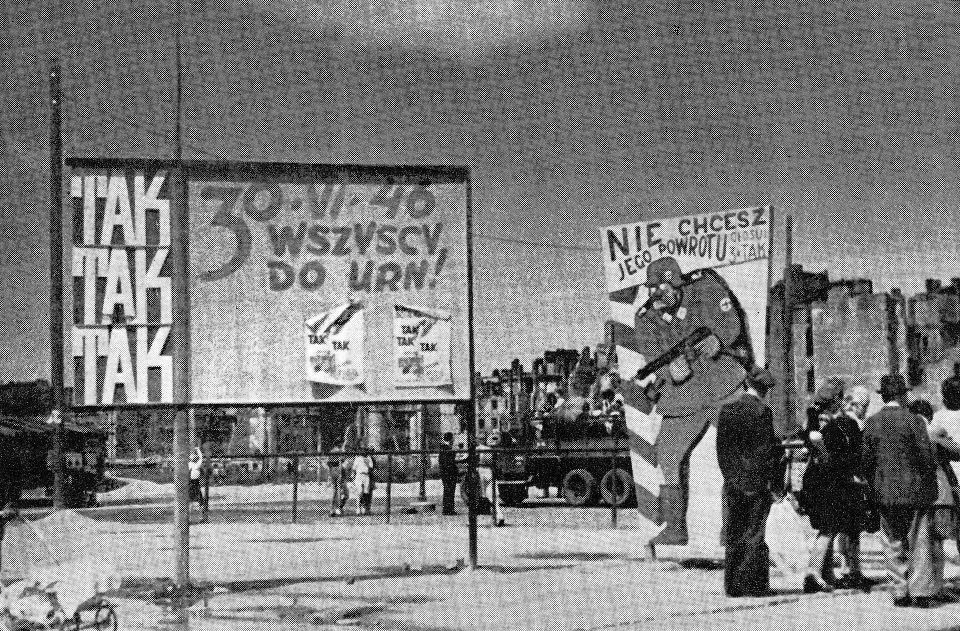On 30 June 1046, the People’s Referendum, also known as the “Three Times Yes Referendum”, was held in Poland.
The referendum was comprised of three questions:
- Are you in favour of abolishing the Senate?
- Do you want consolidation, in the future constitution of the economic system founded on agricultural reform and the nationalisation of basic national industries, including the preservation of the statutory rights of private enterprise?
- Do you want consolidation of the western border of the Polish State on the Baltic, Oder River, and Lusatian Neisse?
Since 1945, the opposition had been demanding free elections, as promised by the Yalta and Potsdam Conferences. However, the communist regime of Bolesław Bierut was unpopular, and he was afraid of defeat in elections. Instead of elections, it was decided to hold a referendum with vague questions masking the actual Stalinisation of the country.
The authorities organised "operational services" for the commissions holding the referendum, introducing the regime's agents there, who declared 90 participants to be representatives of the anti-government underground. Communist propaganda was carried out throughout the country.
The real question was whether Poles trusted the communist authorities or not. The Polish Workers’ Party (PRP) and its allies campaigned in favour of "three times yes", non-communist parties – in favour of "three times no".
Yet, Bierut and the PRP’s leaders were not satisfied with the outcome of the referendum. Nevertheless, on 12 July 1946, the "results" were announced. According to "official" records, 90.1 percent of the electorate, or 11,857,986 people, participated in the referendum. Some 68% of voters answered "yes" on the first question and 77.2% answered "yes" on the second. Around 91.4% voted "yes" on the third question.
Per multiple witness accounts, these results were forged. In Kraków, where the opposition managed to ensure fair voting, 84%, 59%, and 30% of people answered "no" on all three questions respectively. Elections to the Sejm (the lower house of the Polish Parliament) in 1947 experienced even more fraud in favour of the communists.
Sources:
Maria Turlejska. Zapis pierwszej dekady 1945-1954 (in Polish). 1972.
Alexey Alexeyev. Minus sixteen degrees Stalin. Newspaper "Kommersant" from 20.06.2020.
N. V. Petrov. According to Stalin's scenario: the role of the USSR NKVD-MGB organs in Sovietisation of Central and Eastern European countries, 1945-1953. Moscow: ROSSPEN, 2011
























